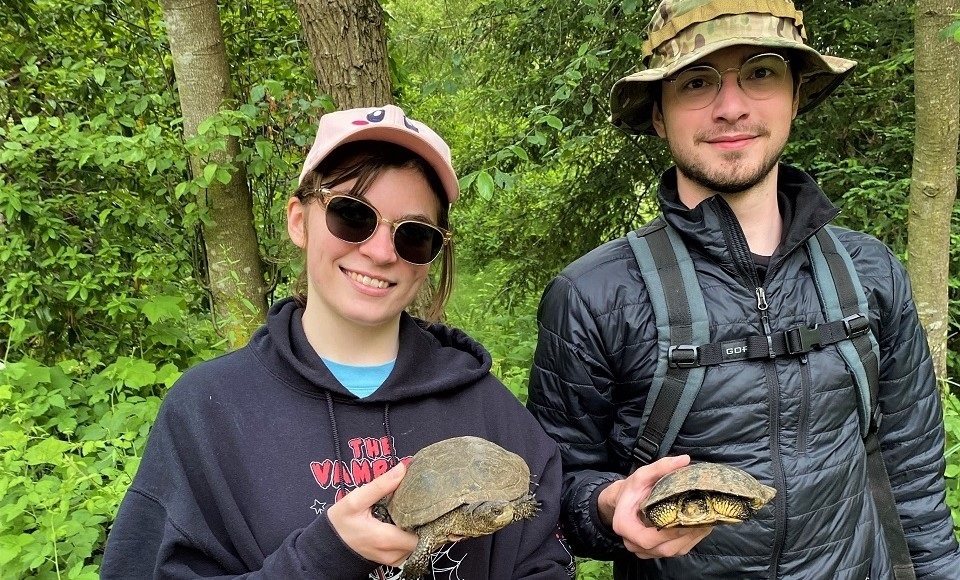Breadcrumbs
- News
- News Archive
- Undergraduate Students Assist Professor In Turtle Research

Hands-on undergraduate research is a hallmark of Dominican University of California’s science program, with students often traveling throughout the Bay Area to work on research projects alongside their professors. Student and faculty researchers from the OHG Lab are in the field over the summer collecting turtles for disease surveillance research.
Dr. Obed Hernández-Gómez, assistant professor in the Department of Health and Natural Sciences, and his team are joining several local wildlife/park agencies for a Bay Area-wide sampling effort to monitor western pond turtle population health and track the distribution of emerging fungal pathogens. Students are gaining experience in trapping/handling freshwater turtles and processing samples in the laboratory.
An earlier study by the Bay Area Western Pond Turtle surveillance team reveals that California’s wild pond turtles are under threat from an infectious fungal disease first discovered in wild turtles in Washington state in 2009. The 2021 study was the first to confirm the presence of Pond Turtle Shell Disease, an infectious disease associated with the fungus Emydomyces testavorans (Emte) in California’s turtles.
Pond Turtle Shell Disease manifests as shell pitting, lesions or hollow areas beneath keratin, and marginal scute (the turtle’s plates) defects of pliability.
EXPLORE OUR UNDERGRADUATE PROGRAMS
While Pond Turtle populations in Northern California are considered relatively stable compared to the northern and southern regions, monitoring is critical, Dr. Hernández-Gómez notes.
“Turtles can suffer serious injury for years before showing evidence of decline, which means that proactive management before declines are observed are critical to turtle conservation.”
The OHG Lab specializes in studying the microbial symbionts and genetics of reptiles and amphibians. On a global scale, amphibian populations are declining as a result of habitat loss, pollution, and disease. Dr. Hernandez-Gomez’s research out of the School of Health and Natural Sciences focuses on characterizing variation in wildlife microbiotas and determining the effect differences in microbial community composition have on disease progression. He applies a combination of traditional microbiological techniques and high-throughput DNA sequencing of microbial and host samples to holistically describe host-microbe associations, evaluate changes in microbial communities over time, and describe the contribution of microbial symbionts to host physiological processes.
The OHG lab interacts with multiple groups outside of Dominican, including collaboration with research institutions such as San Francisco Zoo and Gardens, Washington Department of Fish and Wildlife, Midpeninsula Regional Open Space District, and East Bay Regional Park District.
Above photo of Alison White and Nathan Green in the field helping East Bay Regional Park District with its turtle survey.